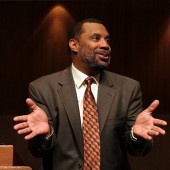Grandpa
George Engler’s gnarled and withered hand laid hold of the smooth coolness of the much smaller one. Her hand, a miniature replica of her mothers, and dimpled above each finger, felt like fine spun glass between his crepey fingers, leathery and spotted from years spent laboring under the harsh Missouri sun.
He reached down and placed the silver pin, a tiny angel with a golden halo, within the grasp of her delicately posed fingers.
Dub had gone home to be with Jesus. It should have been him laid out in that casket, wearing his Sunday-best suit and tie, hands folded across his chest in peaceful repose.
He was old and full of years, and he’d lived a good life; some would even say a meaningful life.
Not Dub, though. Her time on earth was little more than a whisper in the wind, cut short by whatever disease had laid claim to her small body. The doctors thought it might be polio, but they didn’t know for sure.
He was the one that had nicknamed her Dub. Her mama, his daughter Jayne, had said it wasn’t a fit name for a little girl. Even so, it was the pet name he’d chosen for her before she was old enough to walk. She’d shadowed his every move, following him from place to place as he went about his work on the farm. She’d stopped to talk to flowers and birds, and every other animal and insect along the way, chattering non-stop in her merry, sing-song voice.
He’d begged God to bring her back and take him instead. He wanted it to be him that was ushered into the presence of the Savior today, the way it should be, with old going before young. The pain in his daughter’s eyes was too hard to bear. The vacant look in Ben’s eyes, her Daddy’s, mirrored his own.
Dub hadn’t been hurled headlong into eternity with a great, rumbling wave, a crashing of thunder or speedily, like a summer bolt of lightning. No, she’d slipped away, a secret departure in the night, with everyone around her unaware that she was leaving until she’d stepped quietly over to the other side. There’d been no warning of her going, no time to prepare or to brace themselves against the onslaught of grief and anguish that would consume them afterward.
He’d handmade the diminutive pine box, spending a plentiful amount of time painting it white, sanding smooth the edges to a high-shine that reflected the countenance of each tearful mourner as they passed by to pay their last respects.
George stood dutifully now, a polite smile masking the sorrow and turmoil that gurgled up on his insides, pushing the air from his lungs and threatening to suffocate him. Mourners walked by in a woeful procession of sorrow and compassion, a sea of meaningless words afloat on wishes to offer some sort of comfort when the worst that life can offer has been served.
When the funeral home had emptied out and only he remained, he walked toward her casket, an overwhelming sense of fear and dread, knowing this would be their final goodbye. Her cheeks shone like roses in sunshine, a pretense created by whoever had dressed her in her prettiest yellow dress and artfully arranged her hair, not a single strand out of place, and not at all like Dub. No, his girl was a delightful riot of dirt smudges, sticky fingers, and tangled, flyaway curls, jumping through mudpuddles with shoes untied more often than not.
The tears streamed a crooked path through the craggy lines of his cheeks. He didn’t know what to say to her. He didn’t know how to explain the injustice of why she was there in that coffin, while he, an old man, still lived and breathed.
Suddenly, with no small measure of disbelief, he looked up and there was Jesus, standing at the foot of the little white casket. He blinked once, then again, and still once more.
He was still there, an aura of light and compassion swirling around him like a great cloak, his eyes tender with more love than George Engler had ever known.
He fell to his knees and put his face to the floor. “Oh, my Jesus, no, please. Please don’t take her, Jesus, not yet.” He sobbed openly. “Don’t leave me here without her.” He was a broken old man, wounded beyond hope.
Jesus could call her forth like Lazarus, and she’d run to him, whole and well, and this torment would be finished. Instead, He reached out to him, offering him His strength. “It’s her time to go, George, but she’ll be waiting there for you, just on the other side. It’s so close; can you feel it? Your last breath here will be in the same moment that you pass over to the other side and draw your first breath there. You are not a man without hope.”
The intensity of the love and the wondrous gift of salvation that Jesus freely offered left him with a fierce longing to go with them. He wanted to chase after them, to beg Him to take him, too.
Jesus turned back and looked at him. “Soon, George. Soon.”
















